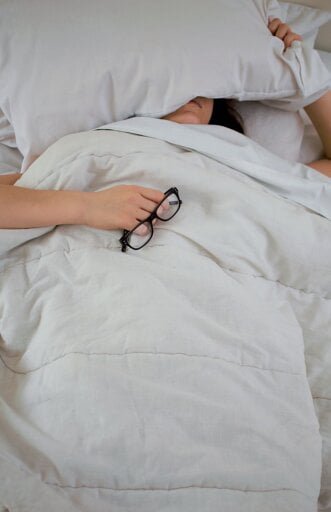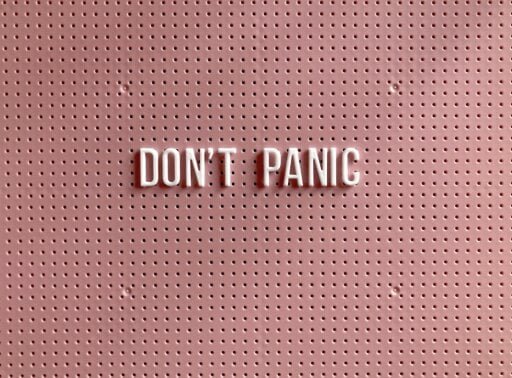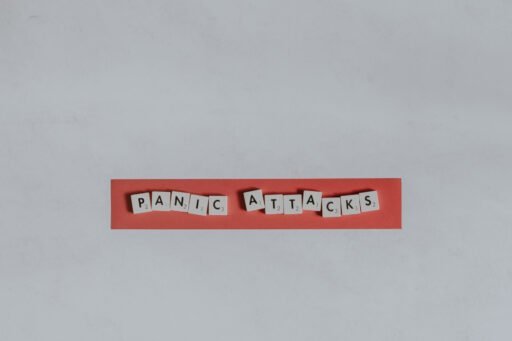Imagine finally finding a solution to your sleepless nights – melatonin, a popular over-the-counter sleep aid that promises to usher you into a peaceful slumber. But what if the supposed remedy became a new source of distress? In this article “Can Melatonin Cause Panic Attacks”, explore the intriguing question of whether melatonin can lead to panic attacks. Delve into the inner workings of this hormone and unravel the potential relationship between its use and the unsettling episodes that can leave you gasping for breath. Brace yourself as we navigate the intricate connection between melatonin and panic attacks, seeking to find clarity amidst the shadows.
Overview: Can Melatonin Cause Panic Attacks
What is melatonin?
Melatonin is a hormone produced naturally by the pineal gland in the brain, and it is responsible for regulating the body’s sleep-wake cycle. It plays a crucial role in promoting healthy sleep patterns and is often used as a sleep aid in supplement form. Melatonin supplements are typically used by individuals who have trouble falling asleep or maintaining a regular sleep schedule.
What are panic attacks?
Panic attacks are intense episodes of fear or apprehension that are often accompanied by physical symptoms, such as a rapid heartbeat, shortness of breath, and a feeling of impending doom. These attacks can occur suddenly and without any apparent trigger, causing significant emotional distress and impacting daily functioning. Panic attacks are a hallmark symptom of panic disorder, a type of anxiety disorder.
Link between Melatonin and Anxiety
Melatonin as a sleep aid
Melatonin supplements are primarily used to promote sleep and alleviate sleep-related issues. By regulating the sleep-wake cycle, melatonin helps individuals achieve a more restful and rejuvenating sleep. As obtaining sufficient sleep is crucial for overall well-being, melatonin can indirectly contribute to reducing anxiety levels by addressing sleep disturbances.
Indirect effects of melatonin on anxiety
Improved sleep quality resulting from melatonin supplementation can have positive effects on anxiety. Sleep deprivation or poor sleep quality may exacerbate anxiety symptoms, as it impairs cognitive function and increases sensitivity to stress. By enhancing the overall sleep experience, melatonin can indirectly diminish anxiety levels and help individuals better cope with stressors.
Possible interactions with other medications
Before starting melatonin supplementation, it is essential to consider potential interactions with other medications. For instance, certain medications, like blood thinners or anticoagulants, may interact with melatonin, leading to increased bleeding risk. Additionally, antidepressant medications, selective serotonin reuptake inhibitors (SSRIs), or benzodiazepines can also interact with melatonin, potentially altering its efficacy. Therefore, it is crucial to consult with a healthcare professional to assess any potential risks or interactions.

Research on Melatonin and Panic Attacks
Limited studies on the direct link
While melatonin’s effects on sleep and anxiety have been studied extensively, there is a limited amount of research specifically exploring its direct impact on panic attacks. The scientific literature on the subject is relatively scarce, and therefore it is challenging to establish a concrete link between melatonin and panic attacks.
Mixed findings in existing research
The existing studies on the relationship between melatonin and panic attacks have produced mixed findings. Some studies suggest that melatonin may help reduce anxiety symptoms, including panic attacks, through its sleep-promoting properties. However, other studies have found no significant association between melatonin and panic attacks, indicating that melatonin supplementation might not have a direct impact on panic disorder.
Potential Causes of Panic Attacks
Pre-existing anxiety disorders
Panic attacks are often seen in individuals with pre-existing anxiety disorders, such as panic disorder, generalized anxiety disorder, or social anxiety disorder. These disorders involve heightened sensitivity to stressors and increased anxiety levels, making individuals more prone to experiencing panic attacks. While melatonin may indirectly alleviate anxiety symptoms, it is important to consider that panic attacks are multifaceted and may not be solely caused by a lack of melatonin.
Individual susceptibility
Each individual has a unique susceptibility to panic attacks. Factors such as genetics, past trauma, and underlying psychological conditions can contribute to an individual’s vulnerability to experiencing panic attacks. It is crucial to understand that melatonin supplementation may not be the sole determining factor in the occurrence of panic attacks, as they are influenced by various personal and environmental factors.
Other factors
Panic attacks can also be triggered by external factors such as stressful life events, substance abuse, or specific phobias. These triggers can activate the body’s fight-or-flight response, leading to a surge of adrenaline and the subsequent experience of a panic attack. While melatonin assists with maintaining a healthy sleep schedule and indirectly reducing anxiety levels, it is imperative to address these underlying triggers and seek appropriate treatment to manage panic attacks effectively.

Side Effects
Common side effects
Melatonin is generally considered safe for short-term use, but like any supplement, it may produce certain side effects. Common side effects of melatonin include daytime sleepiness, dizziness, headaches, and nausea. These side effects are typically mild and temporary, resolving on their own without medical intervention.
Rare but serious side effects
While rare, there have been reports of more serious side effects associated with melatonin use. These can include allergic reactions, changes in blood pressure, changes in hormone levels, and interference with certain medications. It is important to be aware of these potential risks and consult a healthcare professional if any concerning symptoms or interactions arise.
Melatonin Dosage and Timing
Effect of high doses
Taking excessively high doses of melatonin can disrupt the body’s natural sleep-wake cycle and potentially lead to adverse effects. It is recommended to start with a low dosage, typically around 1-3 milligrams, and gradually increase if necessary and under the guidance of a healthcare professional. Taking higher doses without proper medical supervision can result in daytime drowsiness, grogginess, and an increased risk of tolerance, where the body becomes less responsive to the effects of melatonin.
Proper timing of melatonin intake
Timing is crucial when it comes to melatonin supplementation. Melatonin is typically taken around 30-60 minutes before bedtime to allow the body sufficient time to absorb and utilize the hormone effectively. Taking melatonin too early may result in drowsiness during the day, while taking it too late might not yield the desired sleep-promoting effects. Adhering to proper timing guidelines can enhance the efficacy of melatonin as a sleep aid and indirectly help reduce anxiety levels.
Precautions and Interactions

Potential interactions with psychiatric medications
Melatonin can interact with certain psychiatric medications, potentially altering their effectiveness or causing adverse reactions. It is essential to consult with a healthcare professional before combining melatonin with medications like antidepressants, antipsychotics, or anti-anxiety drugs, as these interactions can have significant implications for one’s mental health and overall well-being. A comprehensive evaluation by a healthcare professional will help ensure the safe and appropriate use of melatonin.
Consulting a healthcare professional
Considering the potential interactions, side effects, and individualized nature of panic attacks and anxiety, it is crucial to consult with a healthcare professional before starting melatonin supplementation. They will be able to assess your specific situation, provide personalized recommendations, and address any concerns or questions you may have. Seeking professional guidance is the best way to ensure a safe and effective approach to managing anxiety and panic attacks.
Symptoms of Panic Attacks
Physical symptoms
During a panic attack, individuals often experience a range of distressing physical symptoms, including but not limited to:
- Rapid heartbeat or palpitations
- Sweating
- Trembling or shaking
- Shortness of breath or feeling smothered
- Chest pain or discomfort
- Nausea or stomach distress
- Chills or heat sensations
These physical symptoms can be distressing and may contribute to increased anxiety levels during a panic attack.
Psychological symptoms
In addition to the physical symptoms, panic attacks are also characterized by several psychological symptoms, such as:
- Overwhelming fear or a sense of impending doom
- Feeling detached from oneself or reality (depersonalization)
- Fear of losing control or going crazy
- Intense worry about having another panic attack
- Feeling on edge or constantly vigilant
- Avoidance of situations that may trigger panic attacks
These psychological symptoms can significantly impact an individual’s emotional well-being and daily functioning.
Differentiating Panic Attacks from Other Disorders
Panic attacks vs. heart attacks
Panic attacks and heart attacks can share some similar symptoms, such as chest pain and shortness of breath. However, several key differences can help differentiate between the two. During a heart attack, the chest pain is typically more severe and longer-lasting, accompanied by other symptoms like radiating pain, numbness in the left arm, and profuse sweating. Panic attacks, on the other hand, are not typically associated with physical damage to the heart and are primarily characterized by intense fear or anxiety.
Panic disorder vs. other anxiety disorders
While panic attacks are a hallmark symptom of panic disorder, it is essential to distinguish between panic disorder and other anxiety disorders. Panic disorder is characterized by recurrent, unexpected panic attacks, followed by persistent concerns about having future attacks and significant changes in behavior to avoid potential triggers. Other anxiety disorders, such as generalized anxiety disorder or social anxiety disorder, involve pervasive worry or fear in various situations, rather than specific panic attack episodes.
Managing Panic Attacks
Breathing and relaxation techniques
Practicing deep breathing and relaxation techniques can help manage panic attacks in the moment. These techniques focus on slowing down the breath, engaging in diaphragmatic breathing, and relaxing the body. By consciously adjusting your breathing patterns and engaging in relaxation exercises, you can help calm both the body and the mind during a panic attack.
Cognitive-behavioral therapy
Cognitive-behavioral therapy (CBT) is a widely recognized therapy approach for managing anxiety and panic attacks. CBT aims to identify and challenge negative thought patterns and beliefs that contribute to anxiety. Through this therapy, individuals can learn coping mechanisms, develop strategies to reduce panic trigger responses, and reframe their thinking to manage panic attacks more effectively.
Medication options
In some cases, medication may be prescribed to manage panic attacks and accompanying anxiety symptoms. SSRIs, benzodiazepines, or beta-blockers may ease anxiety. Use medication with therapy under healthcare professional supervision for optimal results.
In conclusion: Can Melatonin Cause Panic Attacks
While melatonin is primarily known for its sleep-promoting properties, its indirect effects on anxiety levels have also been explored. However, the link between melatonin and panic attacks remains inconclusive due to limited research. Panic attacks are complex and influenced by various factors, including pre-existing anxiety disorders, individual susceptibility, and external triggers. When considering melatonin supplementation, it is essential to consult with a healthcare professional, as there are potential interactions and side effects to be mindful of. Managing panic attacks involves a multifaceted approach, including breathing techniques, therapy, and potentially medication. It is crucial to prioritize individualized care and seek professional guidance to effectively address panic attacks and anxiety symptoms.
Frequently Asked Questions:
- Can melatonin cause anxiety attacks? While rare, some individuals may experience increased anxiety or panic-like symptoms with melatonin use. It’s advisable to start with a low dose and consult a healthcare professional if concerns arise.
- Why do I get panic attacks in my sleep? Nocturnal panic attacks can occur during sleep due to various factors, including stress, anxiety disorders, or disruptions in sleep cycles. Seeking professional guidance can help identify and address underlying causes.
- Can melatonin help with nocturnal panic attacks? Melatonin is primarily used to regulate sleep-wake cycles and may not directly address panic attacks. Consult with a healthcare provider to explore appropriate interventions for managing nocturnal panic attacks.
- What is a rolling panic attack? A rolling panic attack involves experiencing successive waves of anxiety or panic, with symptoms recurring or intensifying. Managing triggers and employing coping strategies can help alleviate rolling panic attacks.
- Does melatonin trigger the stress response? Melatonin generally promotes relaxation and sleep, but individual responses vary. If you notice stress-related symptoms, consult a healthcare professional to discuss melatonin use and potential alternatives.
- Who should not take melatonin? Certain individuals, including pregnant or nursing women, those with autoimmune disorders, and those taking specific medications, should consult with a healthcare professional before taking melatonin.
- How do I stop panic attacks while sleeping? To manage panic attacks during sleep, establish a calming bedtime routine, address stressors, practice relaxation techniques, and consider professional guidance for tailored interventions.
- How to calm panic attacks? Calming panic attacks involves deep breathing, grounding techniques, positive affirmations, and focusing on the present moment. Developing a personalized coping strategy with a mental health professional can be beneficial.
- How do you stop panic attacks fast? Stopping panic attacks quickly may involve deep breathing, grounding exercises, and positive self-talk. Identifying triggers and developing coping mechanisms with a healthcare provider contributes to faster relief.
- What is the side effect of melatonin? Common melatonin side effects include drowsiness, headache, and dizziness. Less common side effects may include vivid dreams or mild anxiety. Consult with a healthcare professional if side effects persist.
- Is 10mg of melatonin too much? 10mg of melatonin is a higher dose, and individual tolerance varies. Starting with a lower dose (1-3mg) is recommended. Higher doses may increase the risk of side effects.
- How safe is melatonin? Melatonin is generally considered safe for short-term use, but long-term effects are still being studied. It’s crucial to use melatonin under the guidance of a healthcare professional, especially for extended periods.
- What is the 3 3 3 rule for panic attacks? The 3 3 3 rule involves acknowledging three things you see, hear, and feel during a panic attack. Practicing this grounding technique helps shift focus and reduce anxiety.
- What is the 5 5 5 rule for panic attacks? The 5 5 5 rule encourages taking deep breaths (5 seconds in, 5 seconds hold, 5 seconds exhale) to promote relaxation during a panic attack.
- What are the 3 C’s of a panic attack? The 3 C’s of panic attacks involve catching, checking, and changing negative thought patterns. Identifying and challenging irrational thoughts can help manage panic symptoms.
- Can melatonin trigger PTSD? Melatonin is not known to trigger PTSD. However, individual responses to supplements can vary, and those with PTSD should consult with a healthcare professional before using melatonin.
- Does melatonin trigger GABA? Melatonin indirectly influences GABA (gamma-aminobutyric acid) receptors, promoting relaxation. However, its interaction with GABA is complex, and individual responses may vary.
- Can melatonin cause depression or anxiety? While melatonin generally promotes relaxation, individual responses may differ. If concerns arise, consult with a healthcare professional to discuss potential alternatives and address underlying issues.
- What do anxiety attacks feel like? Anxiety attacks can involve intense fear, sweating, trembling, increased heart rate, shortness of breath, and a sense of impending doom. Seeking professional help is crucial for proper diagnosis and management.
- How long do anxiety attacks last? The duration of anxiety attacks varies. They may last a few minutes to an hour, and recovery can occur with appropriate coping strategies. Persistent or severe attacks should be discussed with a healthcare professional.
- How do I stop thinking about anxiety? Stopping obsessive thoughts about anxiety involves mindfulness, cognitive-behavioral techniques, and redirecting focus. Professional guidance can provide tailored strategies for thought management.
- Is melatonin 100% safe? Melatonin is generally safe when used as directed. However, individual responses vary, and potential side effects should be monitored. It’s advisable to use melatonin under the guidance of a healthcare professional.
- Is 20mg of melatonin too much? A 20mg dose of melatonin is considered high. Starting with a lower dose and gradually adjusting, if needed, is recommended. Consult with a healthcare professional to determine an appropriate dosage.
- Is melatonin safer than sleeping pills? Melatonin is considered a natural sleep aid and may have a different safety profile than some prescription sleeping pills. However, individual factors and medical history should be considered when choosing a sleep aid.
- Do I have a panic disorder? If you experience recurrent, unexpected panic attacks and worry about having more, you may have a panic disorder. Seeking evaluation and guidance from a mental health professional is essential for proper diagnosis and treatment.
- Why am I so anxious for no reason? Unexplained anxiety may be influenced by various factors, including genetics, stress, or underlying mental health conditions. Consulting with a healthcare professional can help identify potential causes and develop a personalized approach to managing anxiety.
- What’s the difference between anxiety attacks and panic attacks? While the terms are often used interchangeably, panic attacks are typically more intense and sudden, with a shorter duration. Anxiety attacks may involve prolonged worry or fear. A mental health professional can provide a precise diagnosis.
- How I cured my panic attacks naturally? Curing panic attacks naturally involves personalized strategies such as cognitive-behavioral therapy, mindfulness, and lifestyle adjustments. Sharing personal experiences can provide insights, but seeking professional guidance is crucial.
- What are 2 signs of a panic disorder? Two signs of panic disorder include recurrent, unexpected panic attacks and persistent worry about having more attacks or their consequences. Seeking professional evaluation is essential for accurate diagnosis and treatment.
- How bad can panic attacks get? Panic attacks can vary in intensity and duration. While they are generally not life-threatening, the impact on daily life can be severe. Seeking professional help for effective management is crucial.
Source: Melatonin
